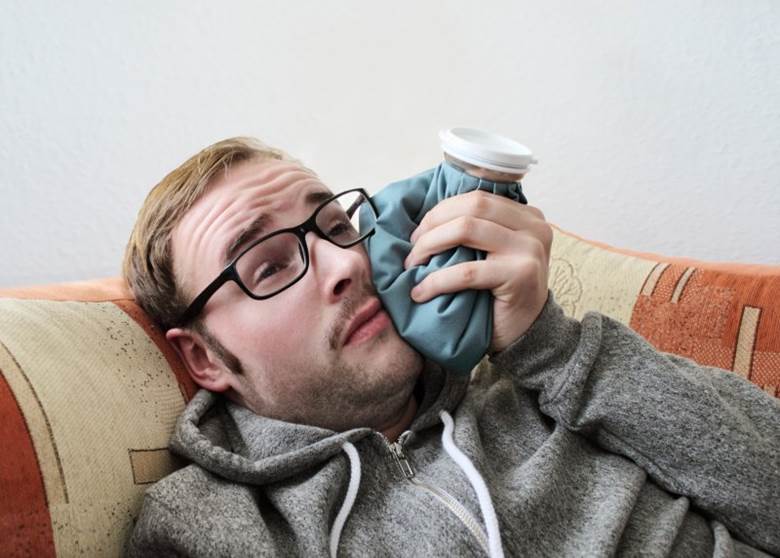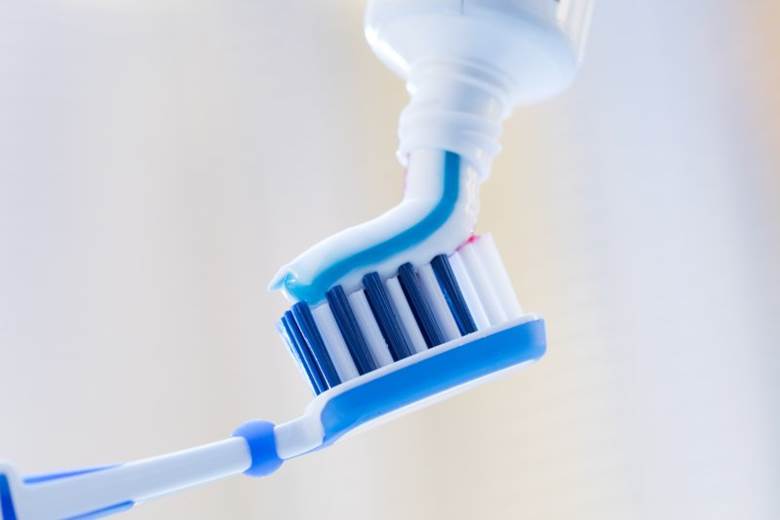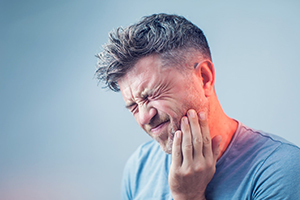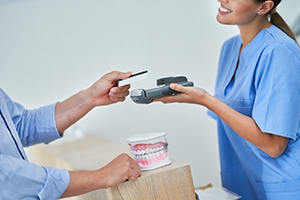If you have an intense toothache or a broken tooth, the last thing you want to do is sit around in a waiting room all day. Yet, that’s exactly what will happen if you go to the ER for an urgent dental problem instead of visiting an emergency dentist in West Edmonton. At Time to Care Dental Group, we not only have the necessary training to quickly relieve your pain, but we have specific, effective dental technology that you won’t find in emergency rooms. We strive to treat emergency patients as soon as possible, so call us right away for the compassionate, immediate care your smile needs.
How to Handle Dental Emergencies

Whether a serious toothache sprung up out of nowhere or a bad fall injured your tooth, you should contact a dental professional soon after the problem arises. When you call us with an urgent dental issue, one of our friendly team members will schedule an appointment for you right away. We’ll also provide you with basic first-aid tips over the phone. Here are some basic tips for managing your condition until you can reach our emergency dental office in West Edmonton.
Toothaches
Take an over-the-counter pain medication such as acetaminophen as needed. Holding a cold compress to your face in ten-minute intervals can mitigate swelling in addition to pain. An intense, persistent toothache often indicates an infection inside the tooth that might require root canal therapy.
Chipped/Broken Tooth
After rinsing your mouth with warm water, apply a cold compress to your cheek for ten minutes on, then ten minutes off. Cover any jagged edges of the remaining tooth with orthodontic wax or sugar-free gum to prevent it from injuring the soft tissues in your mouth. We’ll do our best to save the tooth, but it may need to be extracted if the damage is too severe.
Knocked-Out Tooth
Carefully pick up the tooth by its crown (the part that normally sticks out above the gumline) and rinse it off with warm water. Do NOT scrub it dry or remove any pieces of tissue that may still be attached. Use a mirror to gently place the tooth back into its socket. If that’s not possible, hold it in your cheek pocket or a container of milk. Move quickly, as we can usually only save the tooth if you get to our office within an hour of the incident.
Lost Filling/Crown
Rinse off the restoration and use a dab of toothpaste, petroleum jelly, or denture adhesive to temporarily place it back on the tooth. Until you can see us for permanent reattachment, avoid chewing with that tooth.
How to Prevent Dental Emergencies

Our focus at Time to Care Dental Group is on educating our patients about how to prevent dental health problems before they start. While you can’t always avoid dental emergencies, there are some precautions you can take to minimize your risk, such as:
- Wearing a mouthguard whenever you play sports to shield your teeth from injury
- Never using your teeth to open packages, bottles, etc.
- Keeping up with a daily routine of brushing and flossing
- Seeing us twice a year for a checkup and cleaning
Understanding the Cost of Emergency Dentistry

There is no flat rate for treatment from an emergency dentist in Edmonton since every smile’s situation is different. This means that we won’t be able to provide you with an accurate estimate of how much you can expect to pay for treatment until after we’ve examined your mouth and determined a course of action. However, while the cost greatly varies depending on the severity of the issue, it’s also based on how quickly you seek treatment. Keep reading to learn more about the expected cost of emergency dentistry in Edmonton.
Every Dental Emergency Is Different

It’s worth mentioning that emergency dentistry might not always be as expensive as you think, and certain emergencies generally have lower out-of-pocket costs! For example, a slightly damaged tooth is usually cheaper to fix than undergoing something like root canal therapy or having a tooth extracted. That said, when you arrive for your appointment, our team will quickly conduct an examination to determine the best treatment for your needs. We will then be able to walk you through every step of the process and provide all relevant pricing details so there aren’t any surprises when it’s time to pay your bill.
Does Dental Insurance Cover Dental Emergencies?

Just like how every dental emergency is different, insurance plans also vary from patient to patient, meaning that it’s in your absolute best interest to familiarize yourself with the details of your coverage. In many cases, most providers will cover some or all of the cost of at least one emergency dental visit annually. Generally, common treatments to address dental emergencies such as crowns, extractions, and root canals receive at least partial coverage. Our knowledgeable team is happy to sit down with you and look closely at your policy to ensure that you’re fully maximizing your benefits.
Other Options for Making Dental Emergencies Affordable

We understand the importance of being able to afford emergency care when you’re in dire need of it; financial barriers should never prevent you from assisting your smile. We’re happy to offer flexible dental payment options and work with a number of insurance providers to make certain that the financial aspect of your treatment is the least of your worries.
Taking Care of Your Smile Can Save You Money

Of course, the most effective way to save money on emergency care is by simply avoiding the need for it! Taking care of your smile will ultimately save you an incredible amount of money down the road, plain and simple. Instead of waiting to see if small problems become bigger issues, you should take a proactive approach and brush twice a day, floss daily, and regularly use an antibacterial mouth rinse. It’s also advisable to visit us biannually for preventive care; the longer you wait to address an oral health issue, the more expensive it will become to remedy!
Tooth Extraction FAQs
Your oral and general health relies on every tooth; however, some situations require one to be extracted. Your dentist will always try to preserve your teeth, except when the benefits outweigh the disadvantages. If you need to have a tooth removed, it’s normal to have several concerns, but there’s no reason to worry. Your dentist will explain everything during your consultation. While you wait for your appointment, here are the answers to the most frequently asked questions about tooth extractions in West Edmonton.
Does getting a tooth extracted hurt?
Your comfort is our top priority. You won’t feel anything while having your tooth removed. Your dentist in West Edmonton will use a local numbing agent and may recommend a sedative to block any pain. Although you won’t have any pain during the procedure, your mouth may be a little sore after the effects of any anesthetic or sedatives dissipate. Your dentist will give you strict aftercare instructions to promote a quicker recovery, like taking an OTC pain reliever. If your discomfort doesn’t improve after a few days or you develop any signs of an infection, contact our office right away.
What should I do after my tooth extraction?
You’ll need a friend or loved one to drive you home after your extraction. You’ll need to take it easy for the rest of the day and avoid any strenuous activities for at least 24 hours. It’s best to skip anything that can lead to a painful condition called dry socket, like smoking, drinking through a straw, or rinsing your mouth vigorously. Don’t touch the healing tissue with your tongue or fingers because it can cause the blood clot to be lost too soon. Your dentist will also recommend eating softer foods for a few days and drinking plenty of water to stay hydrated. If you have any discomfort, you can apply a cold compress to the area, in addition to taking a pain reliever. Follow any additional aftercare instructions from your dentist and you’ll be back to your regular activities and diet in no time.
What are the risks involved with tooth extractions?
Tooth extractions are very safe, but there are some risks, which are normal with any dental procedure. A common concern is an infection at the extraction site. If it isn’t treated quickly, it can spread through the body and cause potentially deadly complications. A dry socket is also a risk that can lead to a slow, painful recovery. You can avoid infections and dry socket by following your aftercare instructions.
Can I smoke after getting a tooth extracted?
Tobacco products, including cigars and e-cigarettes, can affect your body’s ability to heal and fight infections. Although it can be difficult to resist your nicotine cravings, don’t smoke immediately after your procedure and for at least 5 additional days. Ideally, it’s best to stop smoking for two weeks. If you’re concerned about your smoking addiction, let your dentist know so they can help you prepare in advance. Don’t worry about facing any judgment.